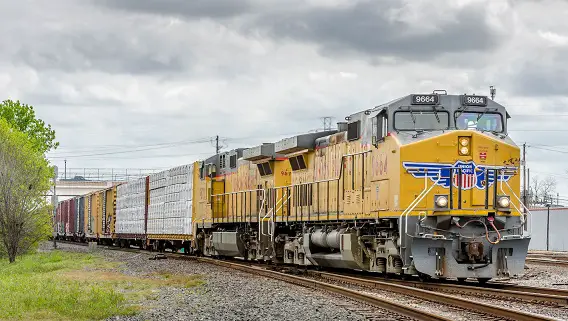Goldman Sachs chief economist Jan Hatzius says while railroad stroke could definitely have an effect on the economy, it would not be a Black Swan event.
In an interview, Hatzius said, “I don’t think it’s a black swan. I think it’s an indication, along with other indications of more labor strife and maybe more tensions, that labor still has a very significant amount of market power relative to the last several decades. The labor market is extremely tight. Employers have to concede bigger wage increases and better working conditions, and strikes are sometimes the consequence of that.”
Over 90,000 railroad workers, employed by Union Pacific, BNSF, CSX, and Norfolk Southern, may go on strike if their unions cannot strike a deal with the railroads by Friday, September 16th. Workers are demanding more pay and better benefits, especially around such issues as scheduling and time off.
It is estimated a strike could bring as much as 30% of the country’s freight to standstill, according to the Federal Railroad administration. That could produce an economic hit to the economy of $2 billion per day.
Although supply chain pressures have been easing following the pandemic, if there is a freight stoppage, that could reverse. Just as the Federal Reserve seems to be impacting inflation, that could cause prices, especially for food items, to begin surging again.
However Goldman’s Matzius says he feels it will not come to that, noting, “I don’t think it’s going to have a major impact on food prices, certainly beyond the very near term.”
In addition, there is historical precedent for Congress to get involved should a strike appear imminent, even taking such measures as forcing both parties into a binding arbitration, rather than allowing the economy to be affected by such shortages. Given the proximity of the mid term elections, some analysts feel it may be more likely that would be how this situation would end.

